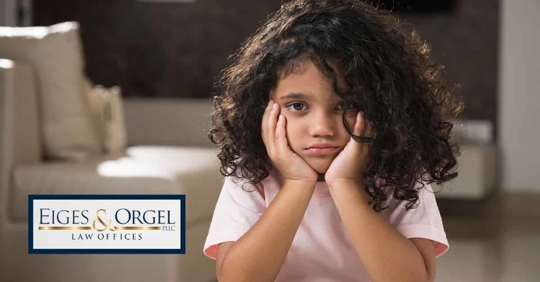Divorce is rarely an easy situation. In the perfect scenario, both parties agree to part ways, divide assets, and even agree on who gets custody of the children. Unfortunately, custody cases are usually more complicated than that.
When it comes to child custody, many factors come into play. Both parties feel that they are the better parent and as such, ligation ensues. But before you go forward with a child custody case in New York, it's best to arm yourself with the right knowledge.
What is Child Custody?
A child custody order is when you or your spouse have the legal responsibility to make decisions for your child's care and wellbeing. Parents with custody can do the following:
- Decide where the child goes to school
- Medical decisions
- What religion the child practices
- Choose where the child resides
- Make decisions for the child’s well-being
Types of Custody in New York
There is more than one type of child custody. In New York, parents can be awarded the following types of custody:
- Legal Custody: The parent(s) with legal custody has the right to make important decisions about a child’s well-being.
- Physical Custody: The parent(s) with physical custody, also called residential custody, are responsible for the actual physical care and supervision of a child.
Either type of custody can be either joint or sole.
Sole Custody
When a parent has sole custody, it means that they make all the decisions as they pertain to the child or children. Sole custody may or may not include full physical custody, but in most cases, it does. This means that the other parent may be allowed to visit with their children, but there are legal limits of what they can do and what decisions they can make.
Joint Custody
When parents have joint legal custody, it means that both parties have equal power to make decisions in the best interest of their child or children. They may also split the time in which children live with each of them. For instance, if both parties live in close proximity, they may split the year equally, so that each parent has the same opportunity to live with their children.
If parents live in another state, they can still have joint custody, meaning they can help make important life decisions, but they may only see their children on holidays and summer vacation.
Deciding Who Gets Custody
Unless proven to be unfit, both parents have equal rights to custody in the state of New York. Generally, the court prefers when parents can make decisions amongst themselves as it’s better for the child. However, if they cannot make a decision, they can file a custody petition to have their case heard before a judge, or they can have their case go through mediation.
In cases where both parents are unfit to take care of their children, family members may step forward and also petition for custody of the children. They need to demonstrate why neither parent is fit to care for their children and explain why they should be granted custody.
Visitation
Unless deemed a threat to the child's well-being, both parents have the right to equal visitation. In cases of peaceful separation, children usually reside with one parent, and a visitation schedule is set forth. Children may stay with the other parent every other weekend and for a set amount of time during the summertime. This again depends on if both parents agree and who has physical custody of the children.
When the Court Makes Custody Decisions
In cases where a child custody agreement cannot be reached, a court may decide who gets custody. The court has the power to make custody decisions if the child is younger than six months old, is a permanent resident of New York, or has lived in the state for at least six months.
New York courts determine custody agreements on what will be in the child’s best interests. When a parent petitions for custody, the court will make a ruling based on lifestyle choices, job stability, and that parent’s ability to take proper care of the child.
Note, until the age of 18, the court does have the power to make final custody decisions. However, children have the right to say which parent they prefer to live with while in court. The court will consider the child’s preference but do not have to abide by it if they feel that it is not in the child’s best interests.
After the final custody ruling, one parent may be ordered to pay child support. The amount is determined by how much both parents earn and the ability to pay. A child support payment schedule is usually included in the child custody agreement or made by the court.
Legal Assistance Can Protect Your Family’s Rights
If you’re going through a divorce and have children, it’s always best to consult with a skilled New York City divorce attorney. At Eiges & Orgel, PLLC, we are dedicated to helping our clients through the custody process. With our divorce lawyers on your side, you can rest easy knowing you and your family’s rights are protected.
If you have questions regarding child custody in New York, call us today at (347) 848-1850.

